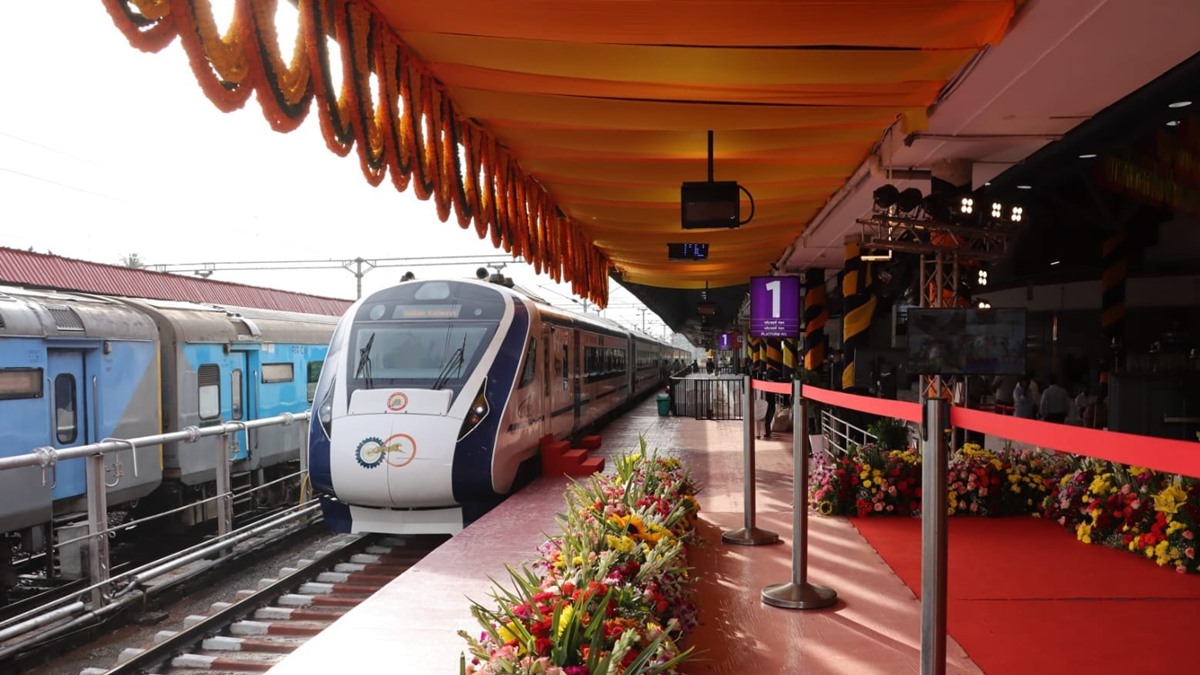
The entire world banks on social media today, why is Govindacharya upset?

The law bars taking away public records from India without the prior approval of the Centre.
Is Govindacharya genuinely concerned about the law or is he just trying to target Narendra Modi?
Is Govindacharya's take on this issue an act of benevolence for his former party's government? However, given the man's past record of criticising Modi, one might feel that the latest controversy has been stirred up with an aim to embarrass the BJP government in general and the prime minister in particular.
Like many of the right-wing old guards, Govindacharya too doesn't like Modi
Govindacharya, a man with an RSS background and the brain behind the revival of the ideas of Swadeshi and Hindutva, has understandably targetted Modi and his government on the issue of social media because of two reasons. One, his disliking for the prime minister. Govindacharya, who once drew the wrath by saying former prime minister Atal Bihari Vajpayee was the mask of the BJP while LK Advani was the real face, have remarked time and again against Modi, sometimes accusing the latter as pro-rich or as one who had little idea about issue like development.
Is Govindacharya out of sync with reality?
Second, the Modi government's choice of bringing into play a popular idea of reaching out to the people through social networking sites has posed a threat to the acceptability and hence the survival of the old right-wing school.
An email policy is okay but what's the problem with social media accounts?
By raising the 'threat to national security' issue, Govindacharya has oversimplified the problem. If the prime minister, his ministers and many of the ministries of the central government have opened their respective Twitter and Facebook accounts to connect with the constituencies in a better way, then there can be absolutely no objection to the idea. This is something that Modi is not the first head of the government has done.
Simply put, social media can't be stopped today
The power of social media can't be resisted any more. Examples of the United States or Canada are far too easy. Even in states like Russia and Malaysia, social media has made a significant progress (we say the parliamentary election in India in 2014 was highly influenced by social media but a year ago, the national election in Malaysia, which is still to cover some distance to emerge at par with India's democracy, was described as the first social media election of that country by the prime minister himself) and anybody engaged in public profession, who still thinks social media is irrelevant, is doing so at his or her own peril. Govindacharya is also perhaps among those souls.
The issue of having a national email policy is more in terms with reality and the Centre has informed the court that the process of finalising such a policy for official communications is already underway. Additional Solicitor General Sanjay Jain has informed the high court that the email policy will soon be placed before the Cabinet for final approval.
PM Modi trusts social media more for reasons known to all
Prime Minister Narendra Modi, for reasons not unknown, trusts the traditional media less and relies more on the social media to reach out to the people. This formula became a hit even before he became the prime minister and there is little surprise that the prime minister is extending the model to other corners of his government. If Modi and his close aides in the BJP who are in control of various departments of the government are using social media, they are doing it to make the business of governance more transparent and reduce the scope for media sensationalism and unwanted controversy in the public 24 into 7.
Social media has its challenges but why can't we have new sets of laws to deal with them?
The social media has undoubtedly created a more challenging situation where a slight mistake can lead to a big impact as has been even seen in countries like the United States but that doesn't mean that one rejects the idea of utilising Twitter and Facebook to bridge the gap in the day-to-day task of governance.
If there are doubts that the government's presence in the social media can pose threat to the nation's security, then the country can always have better laws to deal with such situation. American government officials, for example, have had quite a few embarrassing moments in the realm of social media but they have also devised ways to deal with any eventuality. The social media has also been used for various national campaigns in the world's largest democracy. If we have made a wise move towards that direction to make our democracy more direct and popular then there can be no looking back because some old, sidelined leader raised an objection.


 Click it and Unblock the Notifications
Click it and Unblock the Notifications

































